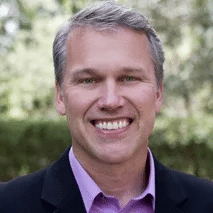About every few months for this blog I interview a senior business executive to find out how they think about and do knowledge transfer. I ask a simple set of five questions that quickly get at helpful information for the knowledge transfer community and allow us to a keep a finger on the pulse of what’s going on out there. Previously we featured Christy Kingsbury of CBRE, Inc. This week we’re hearing from Shari Keivit, Manager of Strategic Learning for General Mills R&D division. Shari has been with General Mills, one of the world’s largest food companies, for 24 years.
1. What’s your (real) role at General Mills?
I lead a team that has responsibility on two main fronts. The first is to manage and deliver product or science-based training to the General Mills technical community. The science and engineering knowledge needed to develop and produce our products is somewhat proprietary to General Mills. Technical employees don’t learn all that they need in school. So, our programs teach them.
The other part of my team manages General Mills internal R&D knowledge that we have codified in our history. That means maintaining the documentation systems that house this knowledge, providing search support, and training users.
My current objectives are focused on propagating knowledge transfer programs and best practices throughout our R&D community. Through the programs above, and new processes we are currently learning or developing, we capture and share both the explicit and tacit knowledge required to develop and manufacture our products.
2. What is the greatest knowledge transfer, talent management, or employee readiness challenge you are, or have been, facing?
The effect of the Boomers-reaching-retirement-age issue is hitting General Mills in a big way this year, and we expect it to remain a challenge for several more years. So, a lot of our recent focus has been on the folks retiring. The challenge with this is getting anyone to think about knowledge transfer as something other than a retirement issue. We need to make this a focus throughout one’s career life cycle.
3. What has been your most successful knowledge transfer strategy to date?
The training programs I mentioned in the first question are a part of this strategy. We are adding to these programs more learning experiences that share the critical tacit knowledge. What has worked really well for us is to have my team be a group of technical experts turned training experts to partner with subject matter experts (SMEs) so the training is based on adult learning theory.
Without intervention, SME’s like to sit down in front of PowerPoint and write down everything they know…on one slide…in 6-pt font! Of course that is an exaggeration, but we have brought a lot of creativity to our product school training making it experiential and highly impactful.
4. What do you now know about knowledge transfer or talent management that you wish you had known from the beginning?
A key insight for me is that you really can’t ask the expert what it is that they know that needs to be transferred. They will either say, “Nothing!” or open the figurative fire hose. One needs to talk to their colleagues, look at past projects, and do a bit more investigation to gain a full understanding of the breadth and depth of knowledge. If the KT work is more topic-based (vs. expert-based), you ask the audience what they want to know, or (like this question you asked me) what they wish they knew. However, this is the time-consuming part.
5. “I would be more effective at knowledge transfer if…”
I had a team of KT facilitators that could guide people through the different processes and tools we are refining. Our experience and benchmarking would suggest it is not DIY the first time through. If it was, we would be doing KT as a part of our natural work processes now. I think there is activation energy to overcome. Once people can see the benefit and how it is not hard, I think it will take hold.
